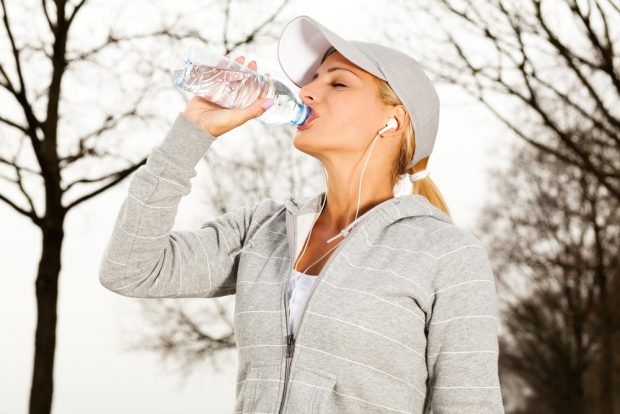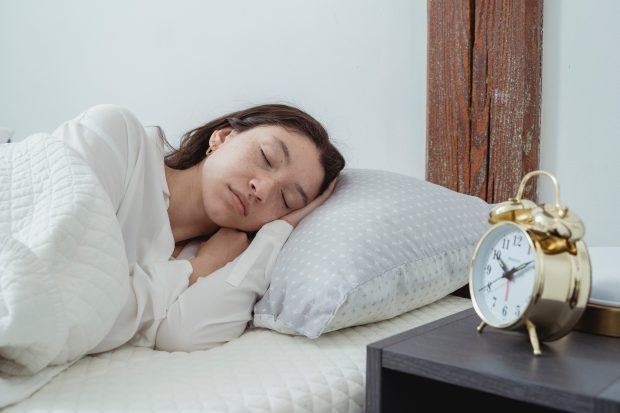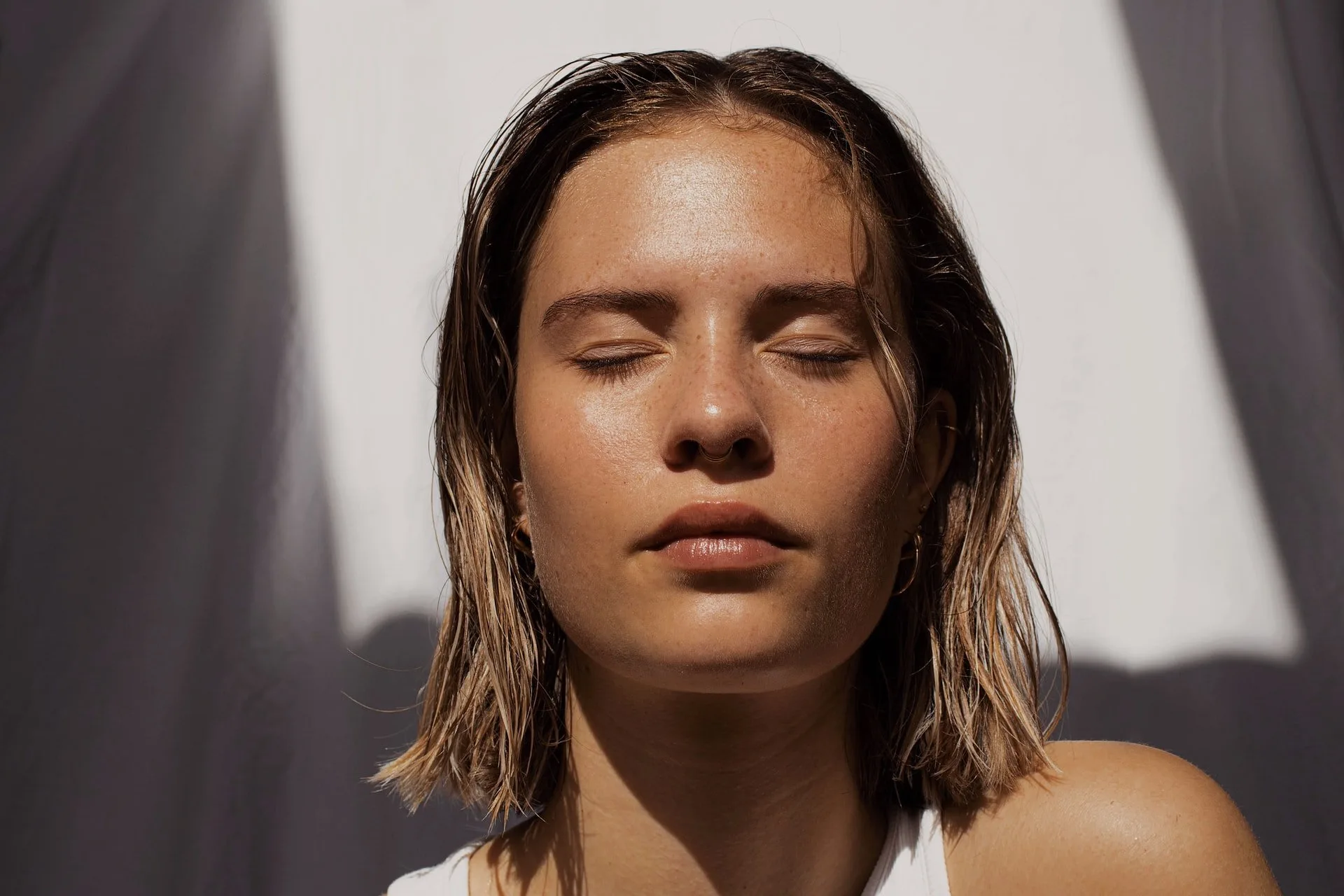When you are in your forties, you may be spending a small fortune on skincare products and cosmetics to look more youthful. Glowing skin indicates that your skin is in its optimal condition, has bright skin without blemishes, and has enough moisture. However, you may not realize that your daily habits play a crucial role in deciding whether you get healthy skin or dry skin with fine lines. If you hope to have better skin, continue reading for eleven tips on getting healthy skin. Longevity Live Paid Content.
Tips for Glowing Skin
1. Stay Hydrated
60% of your body consists of water. Therefore, drinking plenty of this life-supporting liquid is essential for maintaining general physical health and keeping your skin in good condition. Well-hydrated skin is clear and radiant with barely visible pores.
- What type of water should you drink? Here are the hidden sources of water that can count toward your daily water consumption.
 2. Protect your skin from the sun
2. Protect your skin from the sun
UV rays from the sun damage your skin’s elastin and collagen, leading to stretching, sagging, wrinkles, freckles, age spots, skin discoloration, and even skin cancer. Most of the signs of your deteriorating skin may not be because of age, but because of the effects of prolonged sunlight exposure.
- Choose a sunscreen with an SPF of 30 or higher. It also needs to be water-resistant and protected against UVA and UVB rays.
- Don’t forget that your eyes need protection from the sun. For busy individuals, you can use virtual try-ons to find the right sunglasses for yourself in the comfort of your home.
3. Limit Exposure to Blue Light
The wavelengths of blue light are beneficial during the day because they help to boost reaction times, attention, and mood. However, blue light can be disruptive at night because it suppresses the secretion of melatonin, which is essential for sleep. The proliferation and usage of digital screens increase your exposure to blue light.
- Good sleep is one of the factors contributing to healthy skin. Make it a habit of wearing blue-light glasses when using digital devices to protect your eyes from blue light, especially at night.
- When choosing glasses, measure your Pupillary Distance (PD) as precisely as possible for clear vision glasses. According to Zi Xuan, Optometrist from Mouqy, the wrong eyeglasses can cause skin irritation.
4. Eat a Healthy Diet
Your complexion is the mirror of your body – it reflects what’s going on inside. For glowing skin, your body needs proper nourishment, so skin-friendly foods should be the mainstay of what you eat.
- Avoid oily food and food high in sugar content because they can cause acne, skin breakouts, and age your skin.
- Consume fruits and vegetables rich in vitamin C, a powerful antioxidant that protects your skin from the harmful effects of free radicals, improves skin texture, and promotes skin healing.
- Other beneficial nutrients include vitamins A, E, and K, omega-3, selenium, zinc, and polyunsaturated and monounsaturated fats (the so-called good fats).
5. Take Helpful Supplements
As you get older, it becomes more difficult for your body to absorb the necessary nutrients. Moreover, your skin is exposed to various environmental factors that can prematurely age skin.
Supplements that benefit your skin include multivitamins, especially those containing vitamin E and biotin, antioxidants such as resveratrol, and hydration agents like collagen and hyaluronic acid.
- Both oral and topical supplements can help improve the health and quality of your skin.
6. Use Natural Skincare Products
Skincare products that contain natural botanical ingredients are safe and can provide anti-aging, antibacterial, and anti-inflammatory benefits. Conversely, products containing mostly chemicals – e.g., formaldehyde, parabens, phthalates, and sulfates – can trigger skin conditions and damage your skin.
- Read the label!
7. Clean Your Skin
If you don’t bother to clean your skin before going to bed, your skin is sleeping with free radicals that can damage your skin’s collagen, resulting in wrinkles and fine lines. Moreover, your facial pores can be clogged with makeup and oils, resulting in enlarged pores, acne breakouts, and other unwelcome skin issues.
- Even if you go makeup free, your skin will collect dirt and dust from the air. The particles will stay on your skin with sebum and sweat.
8. Get Your Beauty Rest
If you miss out on sufficient sleep, you are exposing yourself to negative changes in your complexion. Damaged cells are repaired during prolonged sleep, so interrupting this process stops your skin from regenerating.
- If you encounter a sleep disorder, you shall seek professional treatment as you are more susceptible to skin aging and conditions like eczema and psoriasis.

Photo by Miriam Alonso: https://www.pexels.com/photo/calm-woman-sleeping-on-pillow-in-bedroom-7622521/
9. Manage Stress
Stress is associated with dysfunction of your immune system and DNA damage, which contributes to aging skin. Constant stress also upsets the antimicrobial function of your skin’s outer layer (the epidermis), making it more prone to infection.
- If you are facing stress, include stress management in your daily routine.
- A high level of stress not only affects your emotions but can also cause sleep disorders and skin issues like clogged pores and acne.
10. Keep Your Skin Moist
Your skin is the most exposed part of your body, exposure of skin to sun and air can lead to loss of moisture. A good moisturizer will replenish your skin’s lost moisture and natural oils and keep your skin looking smooth, soft, and more youthful. Skin that lacks moisture is dull, dry, scaly, and unattractive.
- If you live in a humid environment, avoid cream-based moisturizers. Choose a lotion or serum with a humectant like hyaluronic acid.
- Read our guide to picking anti-aging skin moisturizers.
11. Stay Active
When you exercise, your blood flow increases, and nutrients are easier to deliver to your skin cells. Efficient blood flow also aids in detoxifying and thus helps your complexion.
If you suffer from inflammatory skin issues (e.g., eczema or psoriasis), an increase in body temperature may exacerbate your condition. Therefore, try to exercise in a cool environment (e.g., an air-conditioned gym) or jog in the evening when it’s cooler.
- Avoid swimming because the chlorine in the water can aggravate your symptoms.
 Final Thoughts
Final Thoughts
Glowing skin will help your face look its best, and boost your self-confidence. It sounds hard for a woman in her forties to get glowing skin, but taking positive steps makes it possible for everyone to get healthy, and radiant skin. Beauty starts with good habits!

Alycia Kuan
Who is the author?
Alycia is a digital marketer with a passion for yoga, and music and loves to share her thoughts on healthy living. She likes exploring the latest trends in digital marketing and SEO. Say hi to her on LinkedIn.




 Final Thoughts
Final Thoughts

![women [longevity live]](https://longevitylive.com/wp-content/uploads/2020/01/photo-of-women-walking-down-the-street-1116984-100x100.jpg)









